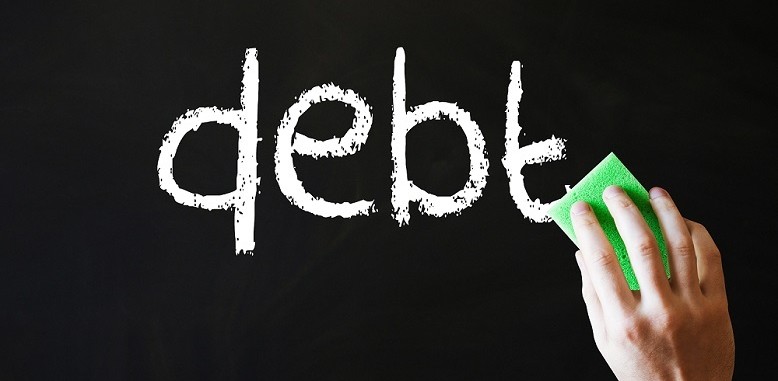Consumers who are struggling with debt are not always sure about their options. Instead of speaking with an experienced bankruptcy attorney, some debtors enroll in debt settlement “programs” which are promoted by debt settlement companies through television and social media advertisements that are often aggressive and deceptive. As the holiday season ends, you may notice an increase in advertisements for debt settlement programs from companies such as National Debt Relief and Freedom Debt Relief. The use of the term “program” can be misleading by implying that they endorsed by a government agency, which they are not. These for-profit companies claim that they can eliminate consumers’ debts by negotiating settlements with creditors for a mere fraction of the outstanding amounts owed. However, these companies often accomplish little for consumers and charge large fees to do so.
What is Debt Settlement?
Debt settlement is a method of debt reduction where a debtor hires a debt settlement company to negotiate with their creditors (typically credit card companies). The companies then attempt to obtain discounted lump sum payoffs or “settlements” for each account. Since most debtors will usually not have the funds available to make such a lump sum payment immediately, the company will instruct the debtor to stop paying their monthly bills and to start making monthly payments into a special escrow account set up by the debt settlement company or a third party. The objective is to build up the funds in the account which can then be used to pay the settlements with the credit card companies, who may be more willing to settle accounts that are considered delinquent. This process can often take three to four years and can be devastating to a debtor’s credit.
The Risks of Debt Settlement
Once the debtor stops making their monthly payment to their creditors, the delinquencies created will be reported to the credit bureaus and the debtor’s credit score will be negatively impacted, often harshly. In our experience, some debtors think that by paying the debt settlement company, the company will make their monthly payments directly to the creditors included in the debt settlement plan. This simply is not true and leads to some debtors being surprised by the sharp decline in their credit score after engaging a debt settlement company.
Beyond the risk to a debtor’s credit score, there are many other risks associated with debt settlement which may not be disclosed to consumers who sign up for the service. First, creditors such as credit card companies are under no obligation to agree to negotiate their accounts. When this happens, the account is left out of the program and the debtor will have to resolve the account on their own.
Next, debt settlement companies do nothing to protect the debtor from the harassing phone calls that occur when an account goes into collection. Nor does debt settlement prevent creditors from filing lawsuits to collect on the unpaid debt. If a creditor obtains a judgment against a debtor, the creditor can enforce it though wage garnishments, frozen bank accounts, or if the debtor owns property, a judgment lien may be placed on their home. While some debt settlement programs tout partnerships with national law firms for an extra fee, the legal services offered do little to prevent a creditor from obtaining a judgment.
Debt settlement programs rarely result in any significant saving for consumers, and many debtors wind up owing more than they did before signing up. Typically, the accounts in a debt settlement program are settled one at a time, often the smallest accounts being settled first. Settlements typically result in a 40%-60% discount but creditors have been tightening up over recent years. Then the debtor also pays 20% to 25% of the total debt balances, with possibly additional service fees built into program to the debt settlement company for their services.
Debtors may also find themselves with a large tax bill when using a debt settlement company which reduces any savings to the consumer from a debt settlement program. The IRS potentially views any cancelled debt over $600 as taxable income. A creditor may issue a Form 1099-C for the debt cancelled in a settlement which must be accounted for when the debtor who received the 1099-C files their taxes. For example, if a $20,000 debt is settled for $10,000, the IRS may consider the approximate $10,000 cancelled debt as taxable income.
Taking into account the amount being paid back, the debt settlement companies fees, the potential negative tax consequences, accruing further interest until a debt is resolved and the fact that some creditors will not negotiate with a debt settlement company, many debtors barely see any net savings by attempting these programs and ruin their credit in the process.
Finally, the vast majority of debtors do not actually complete debt settlement programs, and this is not disclosed when they enroll. A National Consumer Law Center report found that only 1.4% of consumers actually completed a debt settlement program after enrolling. Usually, consumers drop out after having paid service fees to the companies without receiving any benefit from their enrollment. Given such a low success rate, if a debtor wants to sue a debt settlement company, they may find that difficult, since debt settlement companies often restrict consumer’s options in resolving any conflicts through the use of arbitration clauses in their contracts. These agreements limit a wronged party’s ability to sue the debt settlement companies in court. Instead, a consumer must often pay the costs of an expensive arbitration process and these clauses are increasingly hard to get around. See DIRECTV, Inc. v. Imburgia 136 S.Ct. 463 (2015). Arbitrators may be biased in favor of the parties that give them business (i.e., the debt settlement companies). Furthermore, debt settlement companies may be located out of state, and may require you to bring the proceeding in their state, use their state law though a choice of law provision, and use the arbitration company of their choice. This makes it extremely difficult for dissatisfied consumers to get a refund or seek legal redress against debt settlement companies.
Warnings from Regulators Regarding Debt Settlement
Debt settlement companies are regulated by a patchwork of federal and state laws. Here are some warnings from various regulators regarding debt settlement companies:
According to the New York Attorney General:
- Many debt settlement companies make promises that they simply cannot keep and leave consumers in a worse financial state than when they began. These companies advise consumers to stop paying debts and, instead, to place money into a savings account so that enough money will accumulate to allow a settlement offer to be made to any creditors.
The New York Attorney General’s office has also found that “most consumers who sign-up with the debt settlement companies find the companies’ promises are empty. Creditors are under no obligation to settle for less money and often refuse to do so. Consumers who follow the debt settlement companies’ advice to ignore collection efforts or refer those efforts to the debt settlement company usually continue to find themselves subject to creditors’ collection efforts, including lawsuits.”
According to the Consumer Financial Protection Bureau (CFPB):
- Debt settlement may well leave you deeper in debt than you were when you started. Most debt settlement companies will ask you to stop paying your debts in order to get creditors to negotiate and in order to collect the funds required for a settlement. This can have a negative effect on your credit score and may result in the creditor or debt collector filing a lawsuit while you are collecting funds required for a settlement. And if you stop making payments on a credit card, late fees and interest will be added to the debt each month. If you exceed your credit limit, additional fees and charges may apply. This can cause your original debt to increase.
And according to the Federal Trade Commission (FTC):
- Debt settlement programs can be risky. If a company can’t get your creditors to agree to settle your debts, you could owe even more money in the end with late fees and interest. Even if a debt settlement company does get your creditors to agree, you still have to be able to make payments long enough to get the debts paid off. You also have to watch out for dishonest debt settlement companies that make promises they can’t keep, charge you a lot of money, and then do little or nothing to help you. You may not be able to settle all your debts. While you’re in the debt settlement program you may still get calls from debt collectors and your credit report and credit score are likely to be damaged. The process can take years to complete.
Bankruptcy is a Superior Alternative to Debt Settlement Programs
In terms of debt relief, bankruptcy is vastly superior to debt settlement programs and provides debtors with a fresh financial start. When filing for bankruptcy, a debtor hires a licensed bankruptcy attorney, as opposed to dealing with a representative from a debt settlement company. When a bankruptcy petition is filed, the debtor is protected from debt collection by the automatic stay. This strictly prohibits almost all forms of debt collection activity against the debtor including lawsuits, wage garnishment, frozen bank accounts, and harassing debt collection communications, and typically all creditors are bound by the stay.
Additionally, bankruptcy can be a much faster form of debt relief. If a debtor qualifies for Chapter 7 bankruptcy, a debtor can be debt free in a matter of months and then they will be able to start rebuilding their credit. In a Chapter 7 bankruptcy matter, the debt of the party who files is discharged and the debtor can potentially keep a wide variety of assets including retirement accounts, pension, life insurance, money in the bank, most cars, and in New York, up to $179k of equity in real estate for a primary residence. The vast majority of bankruptcy cases are considered non-asset cases, meaning that all of the debtor’s property is exempt or protected in the case.
If a debtor does not qualify for Chapter 7 bankruptcy, they may consider filing for Chapter 13 bankruptcy in which a debtor pays their debt in a typically interest free 60-month payment plan. Just like in a Chapter 7 bankruptcy case, the Chapter 13 debtor is protected by the automatic stay from collection by creditors. When filing for Chapter 13 bankruptcy, the debtor proposes a plan to pay their debts while still having an affordable budget, unlike debt settlement programs which can require debtors to make a large payment without any regard to the impact on the debtor’s monthly budget. In addition, all of the debtor’s credit obligations are efficiently resolved by one monthly payment to a bankruptcy trustee.
In a Chapter 13 bankruptcy case, a bankruptcy trustee pays the claims of creditors who timely and properly file their claims with the Bankruptcy Court. Creditors only have 70 days to file claims with the Court (although governmental creditors have additional time). Not all creditors always file claims, and so a debtor may not have to pay all of their debt in the plan. Furthermore, depending on their income, budget and non-exempt assets, a debtor may only have to pay a percentage of their debt back in the plan. Additionally, all creditors must accept payments from the trustee and cannot opt out or seek to collect money from the debtor in any other way. In contrast with risky debt settlement programs, in a Chapter 13 bankruptcy, debtors receive a discharge upon completion of their plan, and any debt that is not paid in the plan is eliminated without any tax consequences. All creditors listed in the petition are bound by the discharge order and may not continue to collect from the debtor after the case is over.
In both Chapter 7 and Chapter 13 bankruptcy, debtors have no tax liability from any cancelled debt discharged in the bankruptcy. This prevents the potential high tax liability that can result from debt settlement. Plus, the fees involved in both forms of bankruptcy are significantly cheaper than any debt settlement program. In sum, bankruptcy provides a fresh start, while debt settlement is risky and can leave a debtor owing more than they did when they started a debt settlement program. This fact will not be included in any slick advertisements you might see in the coming weeks after the holidays.
Contact The Law Offices of David I. Pankin, P.C.
At the Law Offices of David I. Pankin, P.C. we have over 25 years of experience helping debtors struggling with credit card bills and personal loans. Whether a debtor is filing for Chapter 7 or Chapter 13 bankruptcy, we can help them achieve a fresh financial start. Contact our offices today to schedule a free consultation by calling 888-529-9600 or by using our easy online contact form.






